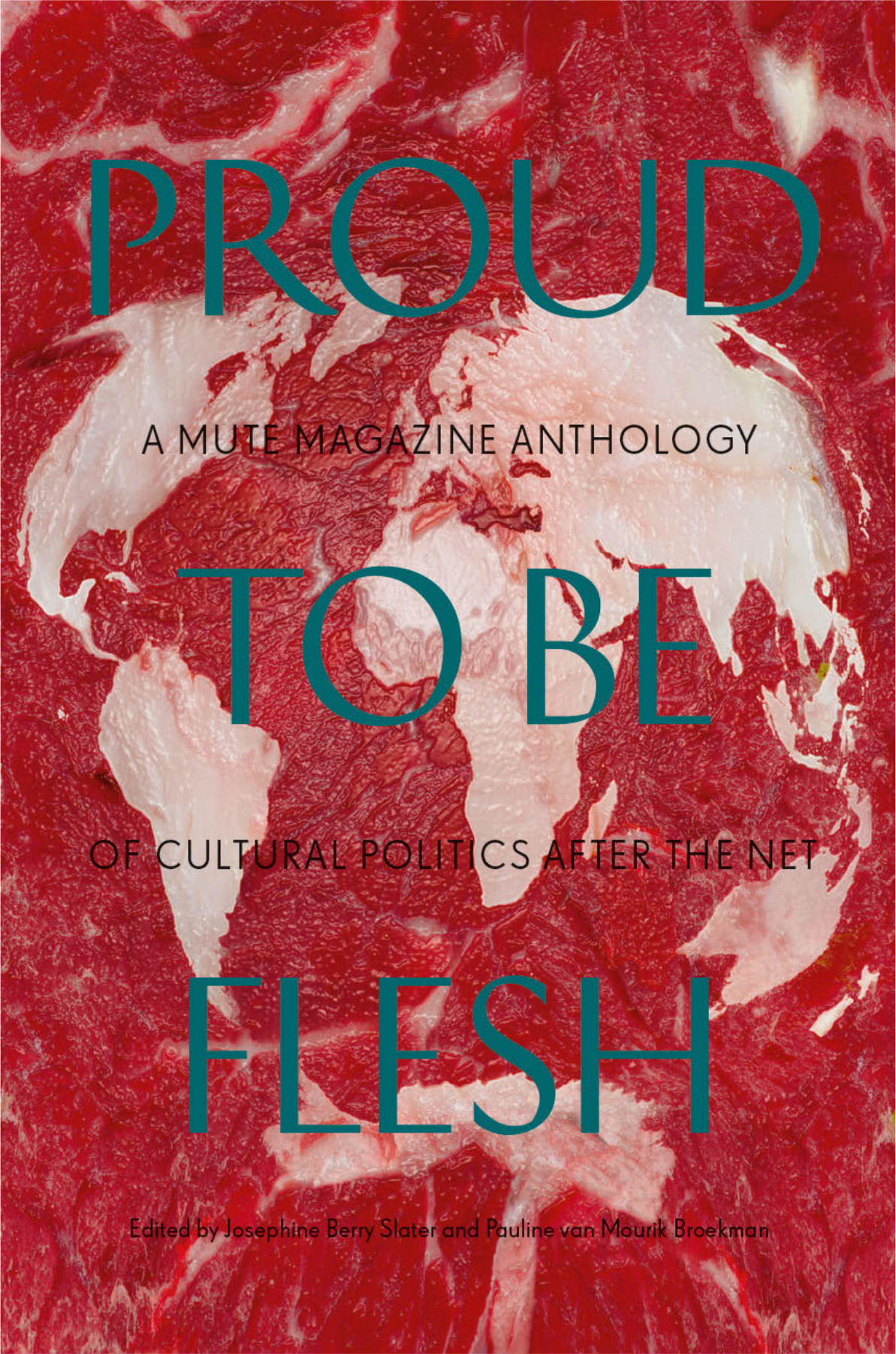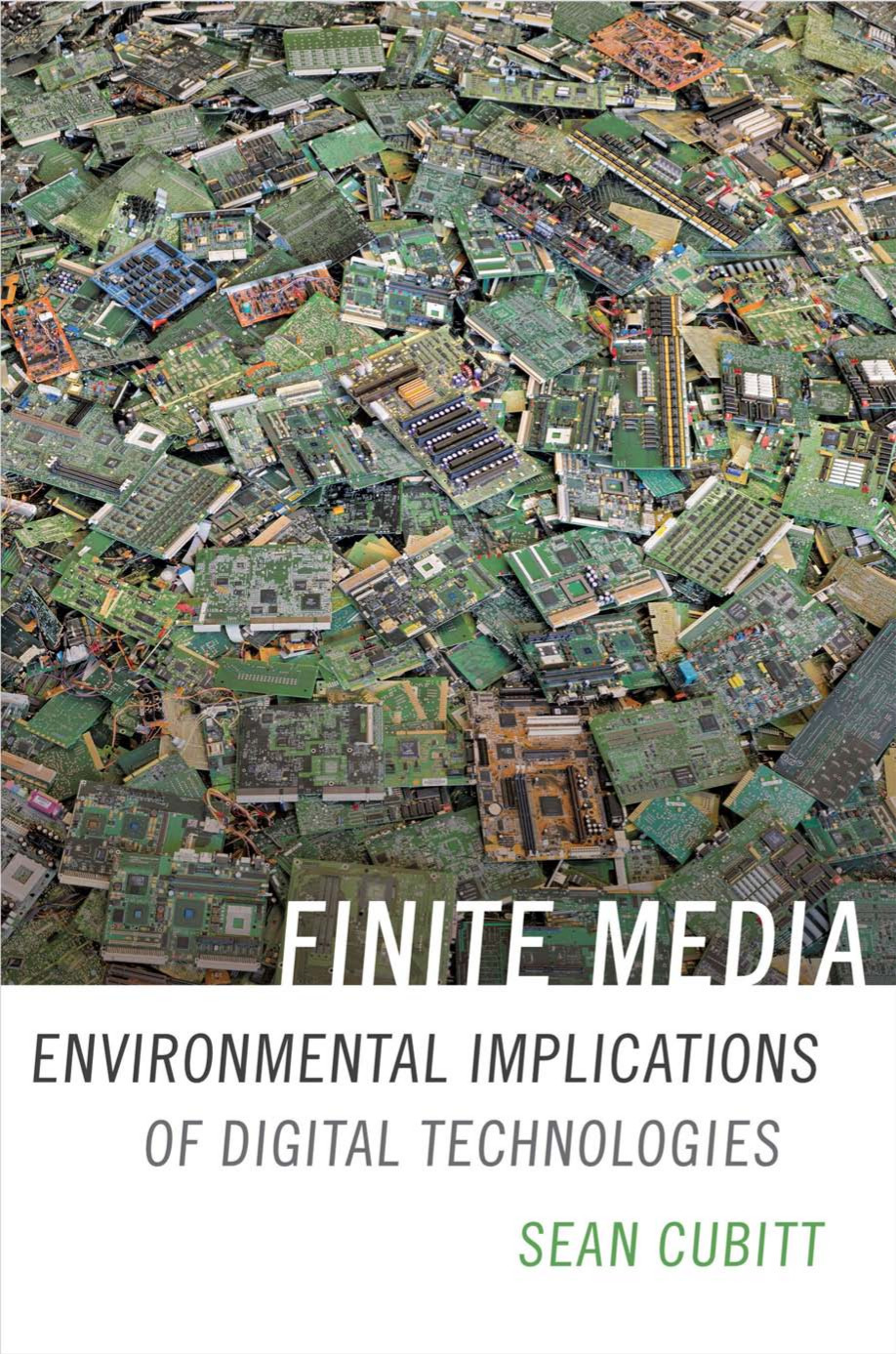Proud to be Flesh: A Mute Magazine Anthology of Cultural Politics after the Net (2009)
Filed under book | Tags: · art criticism, art history, internet, london, media, media art, net culture, networks, politics, technology, theory

“In late 1994, back in the days of dial-up modems and Netscape Navigator 1.0, Mute magazine announced its timely arrival. Dedicated to an analysis of culture and politics ‘after the net’, Mute has consistently challenged the grandiose claims of the communications revolution, debunking its utopian rhetoric and offering more critical perspectives.
Fifteen years on, this anthology selects representative articles from the magazine’s hugely diverse content to reprise some of its recurring themes. This expansive collection charts the perilous journey from Web 1.0 to 2.0, contesting the democratisation this transition implied and laying bare our incorporeal expectations; it exposes the ways in which the logic of technology intersects with that of art and music and, in turn and inevitably, with the logic of business; it heralds the rise of neoliberalism and condemns the human cost; it amplifies the murmurs of dissent and revels in the first signs of collapse. The result situates key – but often little understood – concepts associated with the digital (e.g. the knowledge commons, immaterial labour and open source) in their proper context, producing an impressive overview of contemporary, networked culture in its broadest sense.
Proud to be Flesh features a mix of essays, interviews, satirical fiction, email polemics and reportage from an array of international contributors working in art, philosophy, technology, politics, cultural theory, radical geography and more.”
Edited by Josephine Berry Slater and Pauline van Mourik Broekman, with Michael Corris, Anthony Iles, Benedict Seymour and Simon Worthington
Publisher Mute Publishing, London, with Autonomedia, New York, 2009
ISBN 9781906496289, 1906496285
572+48 pages
Reviews: Nicholas Thoburn (New Formations), Charlotte Frost (Rhizome), Julian Stallabrass (New Left Review).
PDF, PDF (15 MB, updated on 2019-6-12)
Comment (0)Timothy Druckrey (ed.): Ars Electronica: Facing the Future: A Survey of Two Decades (1999)
Filed under book | Tags: · art, computer art, computing, electronic art, internet, media, media art, technology, theory, video art, virtual reality, web

“For the past two decades the Austrian-based Ars Electronica, Festival for Art, Technology, and Society has played a pivotal role in the development of electronic media. Linking artistic practice and critical theory, the annual festival and symposium bring together scientists, philosophers, sociologists, and artists in an ongoing discourse on the effects of digital media on creativity—and on culture itself.
Drawing on the resources of Ars Electronica’s publications and archives, this anthology collects the essential works that form the core of a contemporary art long dismissed as too technical or inaccessible. The book includes a critical introduction, full bibliography, and texts and artworks from the key figures in the field.
Among the many contributors are Robert Adrian, Roy Ascott, Jean Baudrillard, Heidi Grundmann, Donna Haraway, Kathy Huffman, Friedrich Kittler, Knowbotic Research, Myron Kruger, Laurent Migonneau, Sadie Plant, Florian Rötzer, Paul Sermon, Carl Sims, Christa Sommerer, Woody Vasulka, Paul Virilio, Peter Weibel, and Gene Youngblood.”
Publisher MIT Press, 1999
Electronic Culture: History, Theory, and Practice series, 1
ISBN 0262041766, 9780262041768
449 pages
via Ars Electronica
Reviews: Beryl Graham (Convergence, 2000), Rhizome (2000), Stephen Wilson (Leonardo, 2001), Yvonne Spielmann (Leonardo, 2001), Matthew Griffin (PAJ, 2002).
Comment (0)Sean Cubitt: Finite Media: Environmental Implications of Digital Technologies (2016)
Filed under book | Tags: · aesthetics, ecology, energy, environment, matter, media, politics, technology

“While digital media give us the ability to communicate with and know the world, their use comes at the expense of an immense ecological footprint and environmental degradation. In Finite Media Sean Cubitt offers a large-scale rethinking of theories of mediation by examining the environmental and human toll exacted by mining and the manufacture, use, and disposal of millions of phones, computers, and other devices. The way out is through an eco-political media aesthetics, in which people use media to shift their relationship to the environment and where public goods and spaces are available to all. Cubitt demonstrates this through case studies ranging from the 1906 film The Story of the Kelly Gang to an image of Saturn taken during NASA’s Cassini-Huygens mission, suggesting that affective responses to images may generate a populist environmental politics that demands better ways of living and being. Only by reorienting our use of media, Cubitt contends, can we overcome the failures of political elites and the ravages of capital.”
Publisher Duke University Press, 2016
Cultural Politics Books series
ISBN 9780822362920. 0822362929
256 pages
via wX
PDF (updated on 2021-1-29)
Comment (0)
